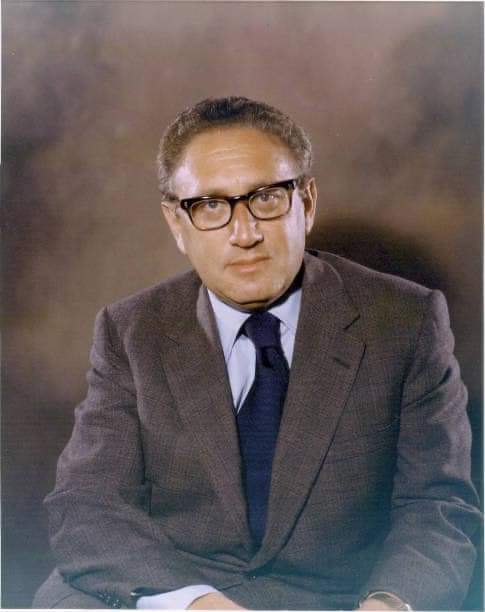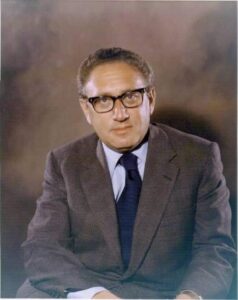Henry Kissinger: A Legacy of Diplomacy and Controversy

Henry Kissinger: A Legacy of Diplomacy and Controvers
Introduction:
Former US Secretary of State Henry Kissinger, a towering figure in the realm of international diplomacy, passed away at the age of 100, leaving behind a legacy that shaped American foreign policy during the Cold War era. This article explores Kissinger’s life, his pivotal roles in the Nixon and Ford administrations, and the lasting impact he had on global affairs.
Early Life and Escape from Nazi Germany:
Born in Germany in 1923, Henry Kissinger’s life took a dramatic turn as his family fled the Nazis in 1938. Arriving in the United States, the young Kissinger, with a Bavarian accent that would remain a distinctive part of his identity, embarked on a journey that would lead him to become one of the most influential figures in American history.
Academic and Military Background:
After becoming a US citizen in 1943, Kissinger served in the US Army and later in the Counter Intelligence Corps. His academic pursuits saw him teaching international relations at Harvard after earning bachelor’s, master’s, and a PhD. This academic foundation laid the groundwork for his later diplomatic career.
Rise to Prominence:
In 1969, President Richard Nixon appointed Kissinger as the national security adviser, a role that granted him significant influence over US foreign policy. Over eight years, he navigated the United States through the end of the Vietnam War, the opening of relations with China, and the resolution of the 1973 Yom Kippur War in the Middle East, introducing the concept of shuttle diplomacy.
Global Recognition and Criticism:
Kissinger’s diplomatic efforts earned him international recognition, including the Nobel Peace Prize in 1973, shared with North Vietnam’s Le Duc Tho, who refused the award. However, this accolade also stirred controversy, leading to resignations within the Nobel committee. Kissinger’s approach to prioritizing Cold War considerations over human rights drew criticism, particularly for supporting repressive regimes, such as that of Augusto Pinochet in Chile.
Enduring Popularity in China:
In China, where Kissinger enjoyed enduring popularity, news of his death trended on social media platforms like Weibo. Chinese media referred to him as “an old friend of the Chinese people” and a “legendary diplomat,” highlighting his crucial role in US-China relations from Mao Zedong to Xi Jinping.
Post-Government Years:
Despite leaving government service in 1977, Kissinger continued to play a significant role in shaping American foreign policy. His counsel was sought by a dozen US presidents, showcasing the enduring impact of his insights. Notably, he remains the only American to have directly engaged with every Chinese leader, contributing to the evolving dynamics between the two nations.
Beyond Politics:
Kissinger’s influence extended beyond politics, as he served on various corporate boards and actively participated in foreign policy and security forums. His intellectual contributions were not limited to the halls of power but also reflected in his authorship of 21 books, delving into the complexities of international relations and diplomacy.
The Controversial Centenarian:
Even in his later years, Kissinger maintained an active life. His surprise visit to Beijing in July 2022, at the age of 99, drew attention and some criticism from the White House. During an interview with ABC, he reflected on a lifetime of contemplating global issues, stating that the recommendations he made were the best he could offer at the time.

Personal Life and Legacy:
Henry Kissinger is survived by his wife of nearly 50 years, Nancy Maginnes Kissinger, two children, Elizabeth and David, from a previous marriage, and five grandchildren. His life story, described by President Nixon’s daughters as “so unique – and so thoroughly American,” leaves a complex legacy that continues to spark debate and discussion.
Conclusion:
Henry Kissinger’s death marks the end of an era, leaving behind a legacy that evokes both admiration and criticism. As a diplomat, he navigated the complexities of the Cold War, reshaping global alliances and leaving an indelible mark on US foreign policy. The controversies surrounding his decisions remind us of the challenging choices faced by leaders in times of geopolitical upheaval. Whether celebrated for his diplomatic achievements or criticized for his policy choices, Henry Kissinger’s impact on the world remains an integral part of modern history.




